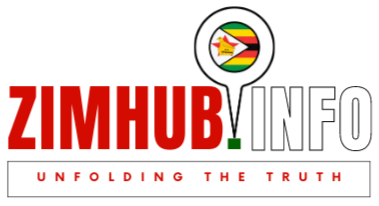SENIOR STAFF WRITER
Local banks are fleecing depositors with their astronomical bank fees and charges coupled with their pitiful interest rates on deposits, it has emerged.
Despite the fact that almost every other industry in the nation is having difficulty surviving as a result of a weak economy, lenders have been thriving as a result of the new focus on non-funded income rather than core business of lending more.
They have achieved this by imposing astronomically high fees and charges on depositors, who are particularly vulnerable.
A snap survey by publication this week revealed a general consensus among depositors that punitive charges have been detrimental to both deposits mobilisation and a fragile economic recovery process.
Now, there is concern that the harsh bank charges and fees may further erode public trust in the unstable financial services industry, which is vital for allocating resources in an economy.
Most banks were this week charging withdrawal fees of about 3% of the amount being withdrawn from 1% charged a few months ago.
Depositors are also parting with about 2.5% for withdrawals done on Automated Teller Machines.
The long-suffering depositors, who claimed the charges were a bitter pill to swallow, have been incensed by the steep increase in service charges.
The government, concerned that this would discourage people from making bank deposits, was also concerned and issued a strong warning to the financial institutions.
“Banks please, your charges [are exorbitant]. Someone commented that we no longer have banks in this country but we now have real estate companies masquerading as banks
Banks are collecting rent from customers on a monthly basis,” permanent secretary in the Ministry of Finance, Economic Development and Investment Promotion, George Guvamatanga, said.
He added: “[Banks now say], you have an account where you pay me a rental of U$25 every month and or US$20 every month.”
According to Guvamatanga, when a depositor makes a cash withdrawal of US$1000, banks deduct a significant portion of their cash.
“When you withdraw US$100 000 for example, there is a 2% -3% commission, and other charges, you walk away from the bank with US$97 000 so the question is are we encouraging depositors to bank their money? There is always an argument that there are different accounts, there is a deposit account, savings account but look at ways of encouraging the depositors to have their money in those accounts which do not attract this US$25 or US$15,” Guvamatanga said.
Guvamatanga requested that banks tidy up their act and reduce their bank fees.
“I think the other place where there is almost robbery is with your own Visa and master cards, those foreign cards. You deposit your money and you attract a commission for depositing your cash. I pledge with you to sit down within the remaining two weeks of this year and when you come back in January 2024, whilst still in office so that when you come back your charges should encourage people to put their money into the bank,” Guvamatanga said.
He added: “Banks are the biggest problem as far as the confidence is concerned because they are all focusing on this non funded income instead of the core business that you lend and you get interest. I was looking at the financial results [banks], most are now at 60%/70% non-funded income. I know they (banks) have restructured their businesses with a 70% non-funded income that’s not achievable anywhere in the world.
“It actually shows that the cost of banking in this country is just too high. It’s something we have not spoken about. I hope banks will relook at it and make adjustments.
Fanuel Mutogo, the CEO of the Bankers Association of Zimbabwe, defended the charges, claiming that the fees were being increased by the Treasury’s Intermediated Money Transfer Tax (IMTT).
“We have competitive charges but the problem is that with this IMTT from the Treasury resulting in the charges going higher and the blame is on banks. We are not responsible for IMTT,” Mutogo said.

